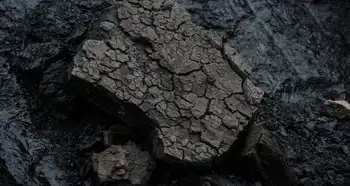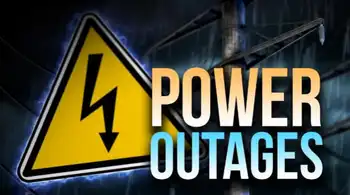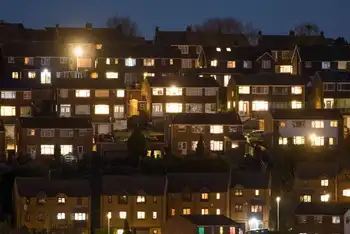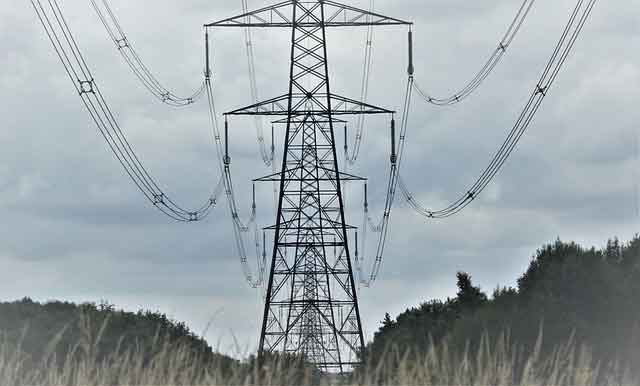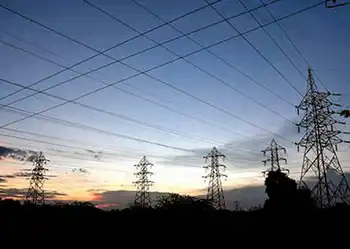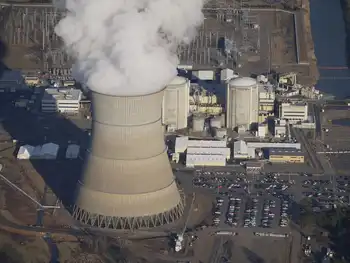Advanced Nuclear Technology drives decarbonization through innovation, SMRs, and a stable grid, bolstering U.S. leadership, energy security, and clean power exports under supportive regulation and policy to meet climate goals cost-effectively.
Key Points
Advanced nuclear technology uses SMRs to deliver low-carbon, reliable power and strengthen energy security.
✅ Accelerates decarbonization with firm, low-carbon baseload power
✅ Enhances grid reliability via SMRs and advanced fuel cycles
✅ Supports U.S. leadership through exports, R&D, and modern regulation
The most cost-effective way--indeed the only reasonable way-- to reduce greenhouse gas emissions and foster our national economic and security interests is through innovation, especially next-gen nuclear power innovation. That's from Rep. Greg Walden, R-Oregon, ranking Republican member of the House Energy and Commerce Committee, speaking to a Subcommittee on Energy hearing titled, "Building a 100 Percent Clean Economy: Advanced Nuclear Technology's Role in a Decarbonized Future."
Here are the balance of his remarks.
Encouraging the deployment of atomic energy technology, strengthening our nuclear industrial base, implementing policies that helps reassert U.S. nuclear leadership globally... all provide a promising path to meet both our environmental and energy security priorities. In fact, it's the only way to meet these priorities.
So today can help us focus on what is possible and what is necessary to build on recent policies we've enacted to ensure we have the right regulatory landscape, the right policies to strengthen our domestic civil industry, and the advanced nuclear reactors on the horizon.
U.S. global leadership here is sorely needed. Exporting clean power and clean power technologies will do more to drive down global Co2 emissions on the path to net-zero emissions worldwide than arbitrary caps that countries fail to meet.
In May last year, the International Energy Agency released an informative report on the role of nuclear power in clean energy systems; it did not find current trends encouraging.
The report noted that nuclear and hydropower "form the backbone of low-carbon electricity generation," responsible for three-quarters of global low-carbon generation and the reduction of over 60 gigatons of carbon dioxide emissions over the past 50 years.
Yet IEA found in advanced economies, nuclear power is in decline, with closing plants and little new investment, "just when the world requires more low-carbon electricity."
There are various reasons for this, some relating to cost overruns and delays, others to policies that fail to value the "low-carbon and energy security attributes" of nuclear. In any case, the report found this failure to encourage nuclear will undermine global efforts to develop cleaner electricity systems.
Germany demonstrates the problem. As it chose to shut down its nuclear industry, it has doubled down on expanding renewables like solar and wind. Ironically, to make this work, it also doubled down on coal. This nuclear phase out has cost Germany $12 billion a year, 70% of which is from increased mortality risk from stronger air pollutants (this according to the National Bureau of Economic Research). If other less technologically advanced nations even could match the rate of renewables growth reached by Germany, they would only hit about a fifth of what is necessary to reach climate goals--and with more expensive energy. So, would they then be forced to bring online even more coal-fired sources than Germany?
On the other hand, as outlined by the authors of the pro-nuclear book "A Bright Future," France and Sweden have both demonstrated in the 1970s and 1980s, how to do it. They showed that the build out of nuclear can be done at five times the rate of Germany's experience with renewables, with increased electricity production and relatively lower prices.
I think the answer is obvious about the importance of nuclear. The question will be "can the United States take the lead going forward?"
We can help to do this in Congress if we fully acknowledge what U.S. leadership on nuclear will mean--both for cleaner power and industrial systems beyond electricity, here and abroad--and for the ever-important national security attributes of a strong U.S. industry.
Witnesses have noted in recent hearings that recognizing how U.S. energy and climate policy effects energy and energy technology relationships world-wide is critical to addressing emissions where they are growing the fastest and for strengthening our national security relationships.
Resurrecting technological leadership in nuclear technology around the world will meet our broader national and energy security reasons--much as unleashing U.S. LNG from our shale revolution restored our ability to counter Russia in energy markets, while also driving cleaner technology. Our nuclear energy exports boost our national security priorities.
We on Energy and Commerce have been working, in a bipartisan manner over the past few Congresses to enhance U.S. nuclear policies. There is most certainly more to do. And I think today's hearing will help us explore what can be done, both administratively and legislatively, to pave the way for advanced nuclear energy.
Let me welcome the panel today. Which, I'm pleased to see, represents several important perspectives, including industry, regulatory, safety, and international expertise, to two innovative companies--Terrapower and my home state of Oregon's NuScale. All of these witnesses can speak to what we need to do to build, operate and lead with these new technologies.
We should work to get our nation's nuclear policy in order, learning from global frameworks like the green industrial revolution abroad. Today represents a good step in that effort.
Related News






